Science & Society
Sign up for our newsletter
We summarize the week's scientific breakthroughs every Thursday.
-
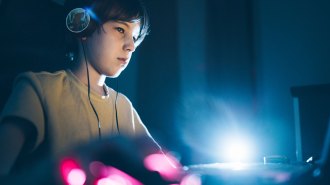 Science & Society
Science & SocietyScreen addiction affects teens’ mental health. How to spot it, and help
Banning screens is often not an option. So Science News spoke with experts studying screen use and addiction in teens to help families navigate this complex issue.
By Sujata Gupta -
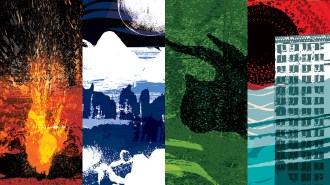 Earth
EarthHow hot can Earth get? Our planet’s climate history holds clues
Earth has survived huge temperature swings over eons of climate change. Humans might not be so lucky.
By Elise Cutts -
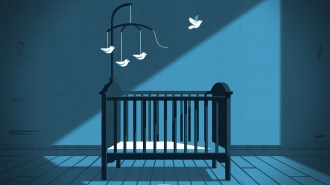 Humans
HumansNo, shaken baby syndrome has not been discredited
Defense lawyers have called shaken baby syndrome, or abusive head trauma, junk science. But doctors say shaking a baby is dangerous.
By Tara Haelle -
 Oceans
OceansDeep-sea mining could start soon — before we understand its risks
The U.S. push to mine international waters for metals defies global efforts to control and protect these fragile ecosystems.
-
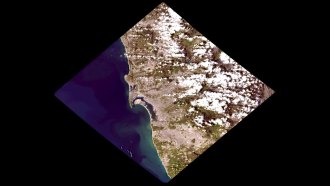 Earth
EarthNASA images may help track sewage in coastal waters
Sewage-contaminated water absorbs certain wavelengths of light, leaving a signature that can be detected by space-based instruments, a new study finds.
-
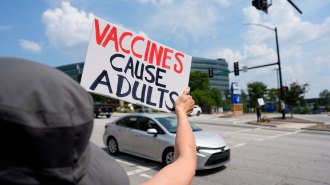 Health & Medicine
Health & MedicineVaccine policy in the U.S. is entering uncharted territory
A key advisory group vows to base decisions on evidence, boost confidence in vaccines and protect health. Experts fear the opposite is happening.
-
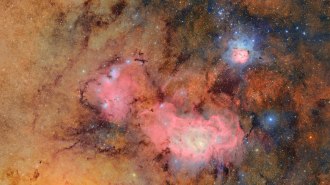 Space
SpaceDistant nebulae star in one of the first images from the Rubin Observatory
These are the first public images collected by the Chile-based observatory, which will begin a decade-long survey of the southern sky later this year.
-
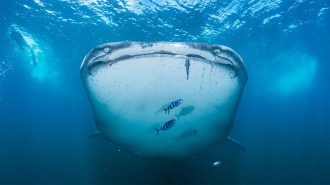 Animals
Animals50 years after ‘Jaws,’ sharks face their own terror
Humans have driven sharks and their cousins to the brink of extinction. The health of the entire ocean is at stake.
-
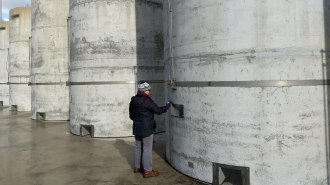 Science & Society
Science & SocietyA Supreme Court ruling on nuclear waste spotlights U.S. storage woes
Court ruling allows interim nuclear waste storage in Texas, but the U.S. still has no long-term plan for its 90,000 metric tons of spent fuel.
-
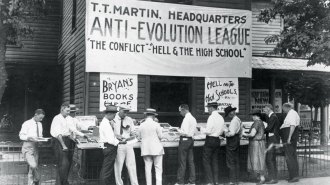 Science & Society
Science & SocietyHow attacks on evolution in classrooms have shifted over the last 100 years
Since the Scopes trial in 1925, Science News has reported on legislative attempts to undermine the teaching of evolution.
By Erin Wayman -
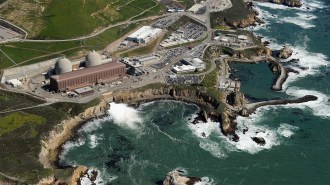 Science & Society
Science & SocietyIs nuclear energy good? A new book explores this complex question
Atomic Dreams explores nuclear energy's future in the U.S. through the history of Diablo Canyon, California's last operational nuclear power plant.
-
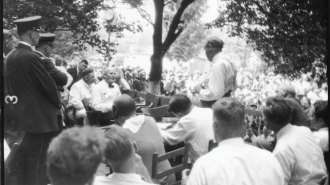 Humans
Humans100 years after the Scopes trial, science is still under attack
In 1925, John Scopes was indicted for teaching evolution. Science News looks at the forces that led to the trial and how expertise was the big loser.